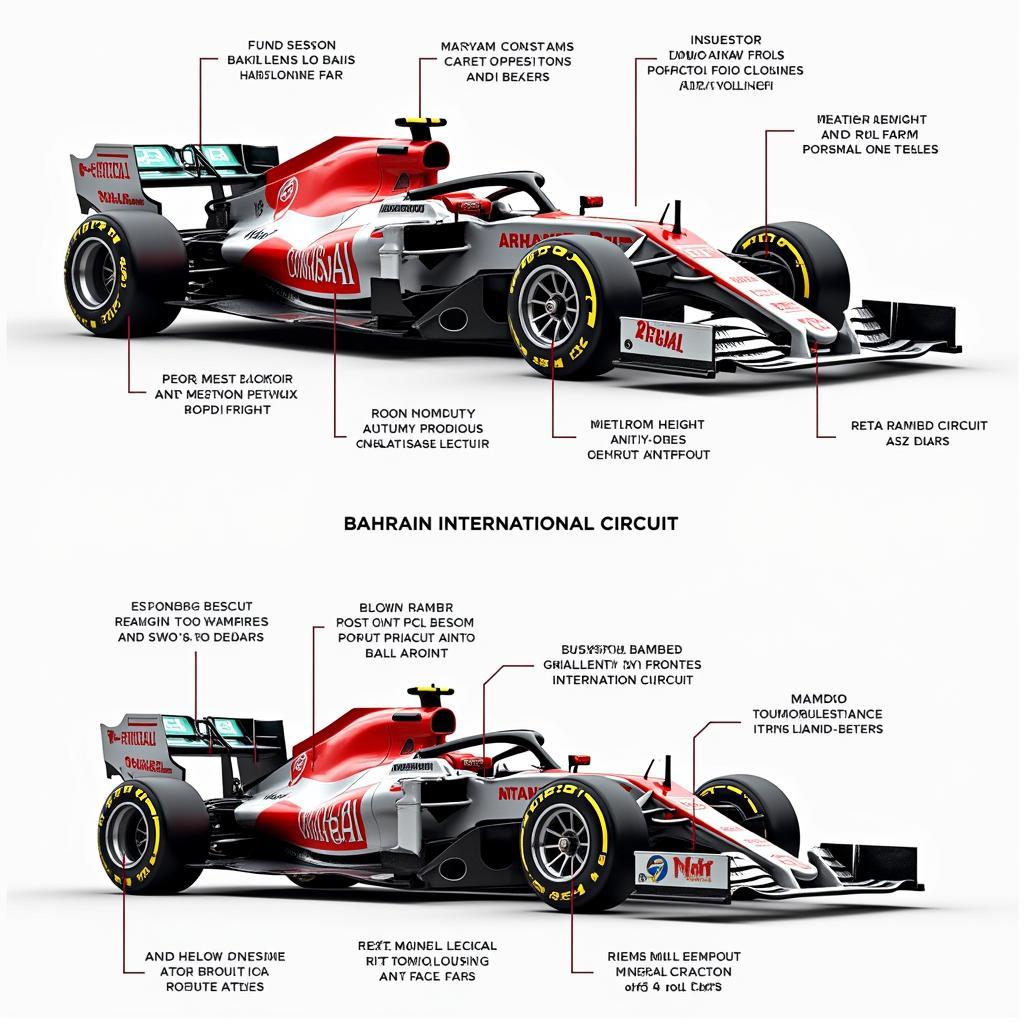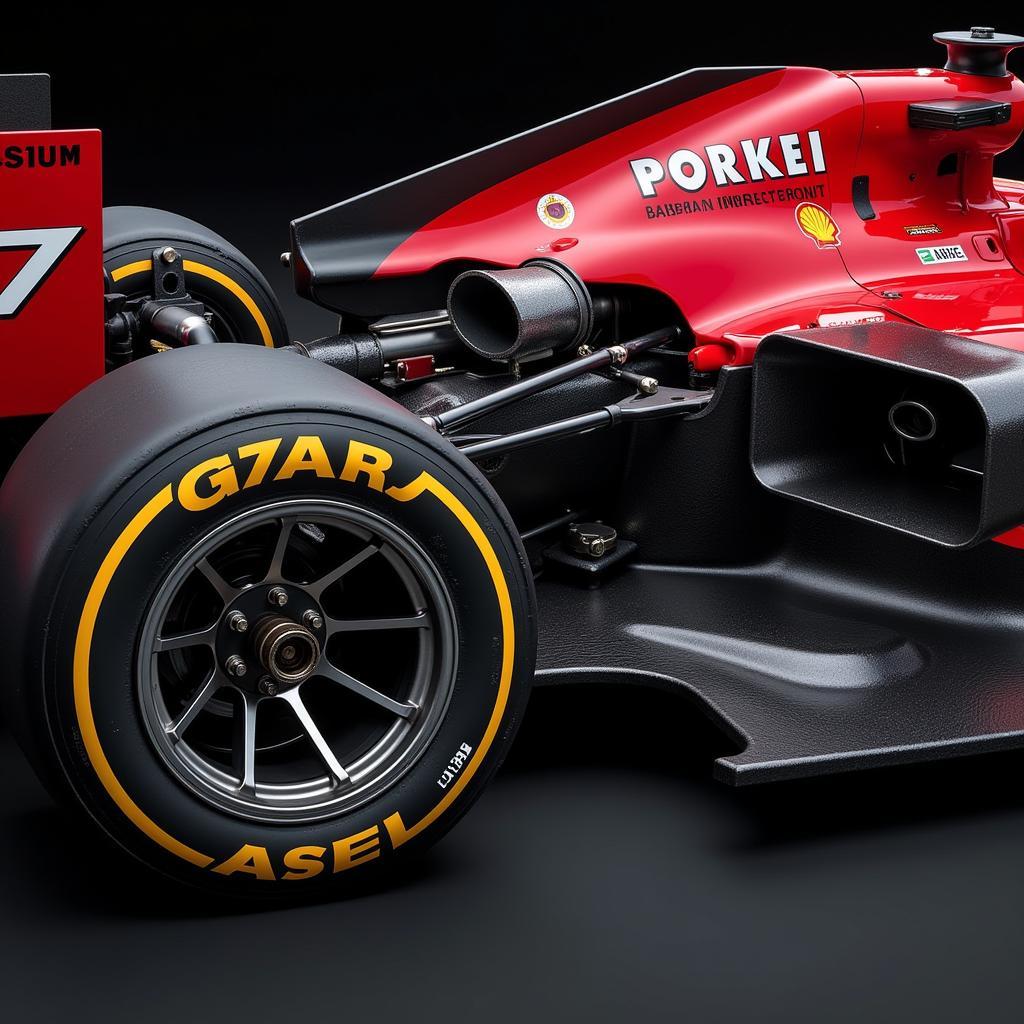Bahrain F124 Setup: Understanding the Nuances
October 31, 2024The Bahrain International Circuit presents unique challenges for Formula 1 drivers and engineers, and understanding the optimal Bahrain F124 Setup is crucial for success. This challenging track demands a delicate balance between straight-line speed for the long straights and downforce for the tight corners. Finding this balance is the key to unlocking the car’s full potential under the desert sun.
Mastering the Bahrain F124 Setup: A Delicate Balancing Act
The Bahrain F124 setup requires careful consideration of several key aspects. From aerodynamic adjustments to suspension tuning, every detail plays a vital role in maximizing performance on this demanding circuit. Let’s dive into the specifics of crafting the perfect Bahrain F124 setup.
Aerodynamics: Finding the Sweet Spot
Aerodynamic efficiency is paramount in Bahrain. The long straights demand minimal drag, while the twisting sections require sufficient downforce for grip and stability. Teams often opt for a medium-downforce configuration, striking a compromise between these conflicting demands. This approach allows drivers to maintain high speeds on the straights while retaining control through the corners.
- Front Wing: A moderately angled front wing helps generate downforce for the slower corners while minimizing drag.
- Rear Wing: The rear wing angle is crucial for balancing downforce and straight-line speed. Finding the optimal balance is key to a successful Bahrain F124 setup.
- DRS: Effective DRS usage is crucial for overtaking on the long straights. A well-configured DRS system can provide a significant speed advantage.
Suspension: Balancing Grip and Stability
The Bahrain track surface is relatively smooth, but the high-speed changes in direction demand a responsive and stable suspension setup. A slightly stiffer setup can help maintain control during cornering, while softer settings can improve traction under braking.
- Ride Height: A slightly lower ride height can improve aerodynamic performance but requires careful consideration to avoid bottoming out.
- Dampers: Optimizing damper settings is crucial for maintaining tire contact and absorbing bumps, ensuring consistent grip throughout the lap.
- Anti-Roll Bars: Balancing the front and rear anti-roll bars helps control body roll and maintain stability during cornering transitions.
 Bahrain F124 Suspension Setup
Bahrain F124 Suspension Setup
Brakes: Managing the Heat
The Bahrain International Circuit features several heavy braking zones, placing significant stress on the braking system. Effective brake cooling is essential to prevent brake fade and maintain consistent stopping power.
- Brake Ducts: Larger brake ducts are often used to improve cooling and manage the high temperatures generated under braking.
- Brake Bias: Adjusting the brake bias allows drivers to fine-tune the balance of braking force between the front and rear axles.
“Bahrain is all about finding the right balance. You need the downforce for the technical sections but can’t afford to sacrifice too much speed on the straights,” says renowned F1 engineer, Dr. Adrian Newey. This sentiment highlights the intricate nature of the Bahrain F124 setup.
 Bahrain F124 Brake Cooling System
Bahrain F124 Brake Cooling System
Conclusion: Optimizing Your Bahrain F124 Setup for Success
A successful Bahrain F124 setup requires a meticulous approach to balancing aerodynamic efficiency, suspension tuning, and brake management. By carefully considering these factors, drivers and engineers can unlock the car’s full potential and achieve optimal performance on this demanding circuit. Mastering the Bahrain F124 setup is key to conquering the desert heat and achieving victory.
For assistance with your F124 setup or any Yamal-related inquiries, please contact us: Phone: 0915117113, Email: [email protected], or visit us at: Tổ 3 Kp Bình An, Phú Thương, Việt Nam, Bình Phước 830000, Việt Nam. We have a 24/7 customer support team.